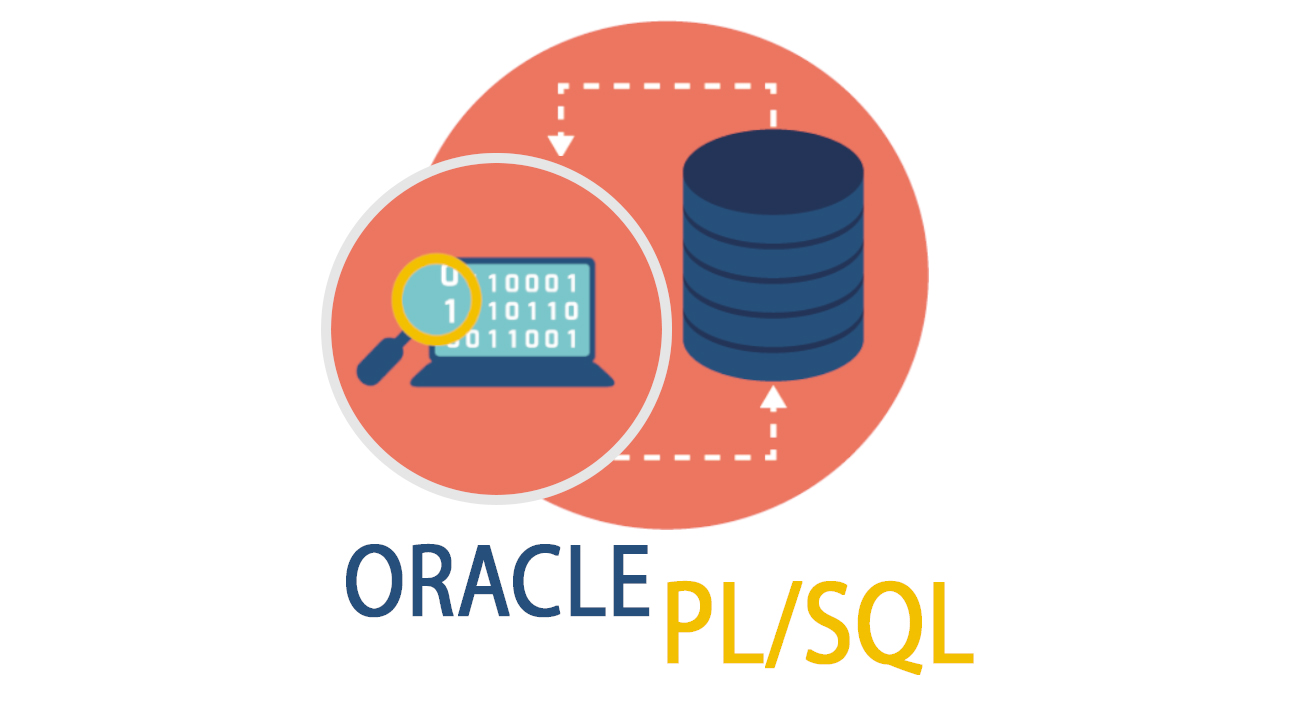Oracle SQL-PLSQL
Redprism came a long way intending to ‘Transform the Career and Lives’ of the individuals in the competitive world and up skilling their career, and creating a balance between the learning and implementing the real-time cases in education and achieve the dreams.

Oracle SQL-PLSQL
What is PL/SQL?
PL/SQL is a procedural language designed specifically to embrace SQL statements within its syntax. PL/SQL program units are compiled by the Oracle Database server and stored inside the database.PL/SQL automatically inherits the robustness, security, and portability of the Oracle Database.
.It was developed by Oracle Corporation in the early 90's to enhance the capabilities of SQL. PL/SQL is one of three key programming languages embedded in the Oracle Database, along with SQL itself and Java.
Who should learn Oracle PL/SQL?
- Freshers
- Software Developers.
- Database Administrators.
- SQL and Analytics Professionals.
- BI and Data Warehousing Professionals.
Exclusive key factors at Redprism
Redprism Training Institute provides best SQL PLSQL online training by our highly professional certified trainers. Oracle is an object-relational database management system created and marketed by Oracle Corporation. Oracle PLSQL language is a flexible procedural extension to SQL and increases productivity, performance, scalability, portability and security. It is Basic Course for Remaining Courses. In this course we can learn to build stored procedures, design and execute modular applications and increase the efficiency of data movement. We are delighted to be one of the best leading IT online training with best experienced IT professionals and skilled resources. In Present Days SQL&PLSQL Course is most valuable. We have been offering courses to consultants, companies so that they can meet all the challenges in their respective technologies. So come and join REDPRISM for Oracle SQL and PL-SQL training.
Prime Features why to Join Red Prism?:-
· Industry Expert Trainers with 10-15 years of experience.
· Course content is curated by best Subject Matter Experts.
· Practical Assignments.
· Real Time Projects.
· Video recording of each and every session.
· Yours doubts are clarified with 24*7 assistance by our experts.
· We conduct regular Mock tests and certifications at the end of course.
· Certification Guidance.
· Recognized training complete certificate.
· 100% Placement Assistance.
· Less fees as compared to other institutes.
· Flexi payment options
· Scholarship Available
Course Content:-
· DBMS Concepts
· Role of Oracle 11g in Information management.
· Concepts of RDBMS
· RDBMS Rules (Codd’s Rules)
· What is Object Model?
· Features of Oracle 9i/10g/11i/12c
· E-R Modeling
· What is SQL?
· Roles of SQL in RDBMS
· What is SQL * Plus
· Types of Plus Commands
· Data Definition Language (DDL)
· Naming Conversion in Oracle
· Data Types of Oracle
· Implementation of Data Integrity & Integrity Constraints
· Normalization
· System Tables & Data Dictionary
· Insert
· Select
· Update
· Delete
· Single Row Functions
· Group functions
· Arithmetic Functions
· String Manipulation Functions
· Date Manipulation Functions
· Data conversion Functions
· List of Functions /Misc.Functions
· What is join?
· Types of joins
· Cartesian joins
· Equi join/Non Equi/Outer/Self joins
· Simple /complex sub queries
· Co-related sub query
· Filters/Set operator usage
· Arithmetic Operators
· Relational Operators
· Relational Negation Operators
· Logical Operators
· Set Operators
· Index
· Types of Indexes
· Unique Index
· Non Unique Index
· Function Bases Index
· Types of views
· Forced views
· Rules for DML on Views
· In –Line Views
· Materialized Views
· Types of synonyms
· Private synonym
· Public synonym
· Security aspect
· Usage mechanism of clusters
· Usage of varies clauses
· Pseudo columns
· Simple Deletion
· Critical Data Deletion
· Using joining concept
· Using Sub query concept
· Using correlate Sub queries
· Table Updation
· Multi column updates
· Table Updation Using Decode Statement
· COMMIT
· ROLLBACK
· SAVE POINT
· Data Consistency
· GRANT
· REVOKE
· Create New User
· Assign Privileges For User
· What are privileges?
· What is role?
· Grant privileges
· Cascading privileges
· Password Change
· Oracle Table Partitions
· Range Partitions
· List Partitions
· Composite Partitions
· Introduction to PL/SQL
· Key benefits of PL/SQL over SQL
· Architecture of PL/SQL
· PL/SQL block Structure
· Constructs of PL/SQL
· Data type support in PL/SQL
· Variables /Constants of PL/SQL
· Flow control Statement Types
· If /Nested if .. / Exit/Go to/Raise
· Instructive statement types
· Simple loop (infinite loop)
· While loop
· For loop
· Reverse For loop
· What is Embedded SQL
· Need of Embedded SQL
· Constructs of Embedded SQL
· Transactions through Embedded SQL
· Valid statements of SQL
· Dynamic SQL
· What is Exception?
· Type of Exceptions
· Uses Defined Exceptions
· Use of raise and its Scope
· Raise – Application-Error ( )
· PRAGMA EXCEPTION_INIT ( )
· Description
· Advantages
· Types of variables of PL/SQL
· Record type of PL/SQL
· Instruction to Cursor Management
· Pictorial view of cursor Diagram
· Implicit curser
· Explicit curser
· Cursor 1st Model
· Cursor 2nd Model
· Cursor 3rd Model
· Cursor 4th Model
· Cursor 5th Model
· Cursor Attributes
· Cursors using simple loop
· Cursor for loops
· Cursor Exceptions
· Static Ref cursor
· Dynamic Ref cursor
· Dynamic behaviors of cursor mnt
· User defined types (RECORDS)
· PL/SQL tables (2D ARRAYS)
· Dynamic behaviors of PL/SQL tables
· PL/SQL table Attributes
· Bulk Collect
· Bulk Bind
· Types of PL/SQL blocks
· Anonymous PL/SQL block
· Named PL/SQL block
· Stored PL/SQL
· Procedures
· Type of parameters
· Procedures Using In Parameter
· Procedures Using Out Parameter
· Procedures Using InOut Parameters
· Functions
· Description
· Advantages over Stand alone Schema objects
· Encapsulation
· Package over loading
· Packages Create Using Global Variables
· Packages Create Using Record Types
· Packages Create Using Cursors
· Packages Create Using Ref Cursors
· Packages Create Using plsql Table Types
· Packages Create Using Procedures
· Packages Create Using Functions
· 12 Types of Triggers
· Triggering events
· Usage of Old & New reference
· View Trigger instead of Trigger Cascading /firing
· Table mutation error
· Bind variable support
· Special clauses of Triggers
· Statement Level Triggers
· Row Level Triggers
· Object Types
· Create Object Tables
· Create Nested Tables
· Index By Tables / Associative Array
· Varray
· New enhancements in oracle 10g,11g And 12c
· New clauses in joining of tables
· Inner join/left outer join /right outer join
· Full outer join/natural full outer join
· Using clause/cross join
· Multi table inserts
· Insert all command
· Merge command (UpSert)
· NVL ( ) enhancements
· Case statement of select command
· Searched CASE expression
· Heap tables
· Index Organized Tables (IOT)
· Temporary tables/global tables
· Multi column updates
· Multiple Row sub queries
· New function EXTRACT( )
· Usage of sub query in select list
· Autonomous Transaction
· Flashback Concepts
· Purge Concepts






